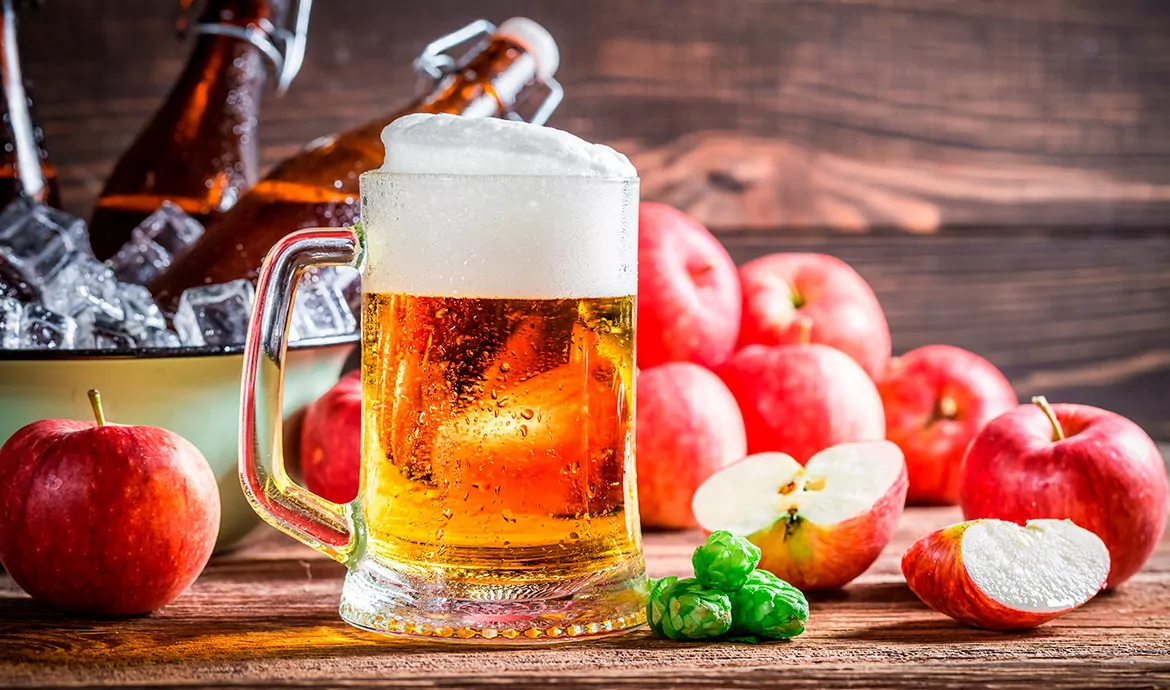Crafting your own fruit beer can be a fun hobby which some people have turned into a business.
It’s not hard to do and it doesn’t have to be expensive either. Find out how to brew the perfect fruit beer at home.
Brewing fruit beer: getting started
Equipment
If you are already set up to brew beer at home, you won’t need any new equipment to make a good fruit beer. If you are completely new to craft beer brewing, the easiest way to start is to purchase a basic homebrewing kit.
The key items that you will need to start:
- Brewing kettle: used to boil up the wort (unfermented beer).
- Fermenter: cooled off wort is poured into a fermenter to begin primary – and sometimes secondary – fermentation.
- Funnel: to pour the beer into bottles.
- Sanitizer: sanitizing your equipment is a key part of the process.
- Auto-siphon: siphoning is a way of moving beer, or “racking” beer, from one container to the next without introducing a lot of oxygen or transferring a lot of sediment. It stops the process from being messy.
- Stir spoon: to agitate the wort.
For fruit beer it is a good idea to invest in a refractometer, so you know the sugar level of your fruit.

Recipe
The basic ingredients for beer are malts, hops, yeast, and water. Different beer styles, from pale ales to dark stouts, require different types and amounts of ingredients.
Barley is the most widely used grain for making beer, and it makes a good base, but it’s possible to use other grains too. Other grains like rye, oats and corn add a specific character to the beer. Make sure that you maintain a balance between base malts and specialty grains when tweaking a recipe.
You can find a recipe according to the beer style that you want to brew and dive into the beer making process.
The next step is to choose the fruit that you would like to complement your beer with. You will need to examine the flavors in the fruit, and think about adjusting your recipe to suit the flavor. As a general rule use 1.0lb of fruit per gallon of beer for strongly flavored fruits (like raspberries), and 2.0lb per gallon for milder fruits (such as cherries).
Getting the flavor right
To create a beer with a fruit character, without letting the fruit overpower the beer, balance is of the utmost importance. After all you don’t want the fruit to steal the show – you want to taste the beer!
- Choose fruit that will complement the beer style that you have chosen. Various fruits add various flavors. For example, strawberries and raspberries go well with stouts and peaches and apricots could complement a strong ale. This may take some experimentation. Take some time developing your recipe. Try and match the intensity of the fruit’s flavor with the specific beer style.
- The style of the beer should be accurate in its appearance, mouthfeel, beer flavors etc. Different fruits can add haze, and changes in color and mouthfeel.
- Your fruit of choice shouldn’t add sweetness to the beer base.
Using fruit purees instead of real fruit
Fruit purees are a huge help when it comes to crafting fruit beer. Firstly, they are available in season and out. Secondly, they save you time on processing. Thirdly, they are packaged sterile, so will not ever give your beer an ‘off’ taste.
One of the biggest fears that homebrewers have when thinking about crafting their first fruit beer is contamination. This is caused by microorganisms from the fresh fruit.
Pure fruit purees provide the perfect blend of color, aroma and “punch” to the final fruit beer.
Fermentation process
There are three fermentation phases when crafting beer. The total fermentation time takes up to 2 weeks depending on conditions and ambient temperature. It’s best to combine the fruit and the beer after the primary fermentation has been completed. Add the fruit to the secondary fermenter and rack the fermented beer on the fruit. Bring some yeast with to ensure a robust secondary fermentation. Rack the beer off of the fruit into a different fermentation container when the secondary fermentation process is complete. Allow the beer to set until clear.
Although there are challenges to brewing fruit beer, with the correct equipment, ingredients, a touch of experimentation and a good dose of patience, it’s a worthwhile challenge. Sipping a fruit beer is the perfect way to enjoy a lovely and warm day with friends.
References
WEIKERT, J. (2018). MAKE YOUR BEST FRUIT BEER.
RETRIEVED FROM HERE
COLBY, C. (N.D.). BREWING WITH FRUIT.
RETRIEVED FROM HERE
O’CONNOR, S. (2015) BREWING WITH FRUIT
RETRIEVED FROM HERE




















